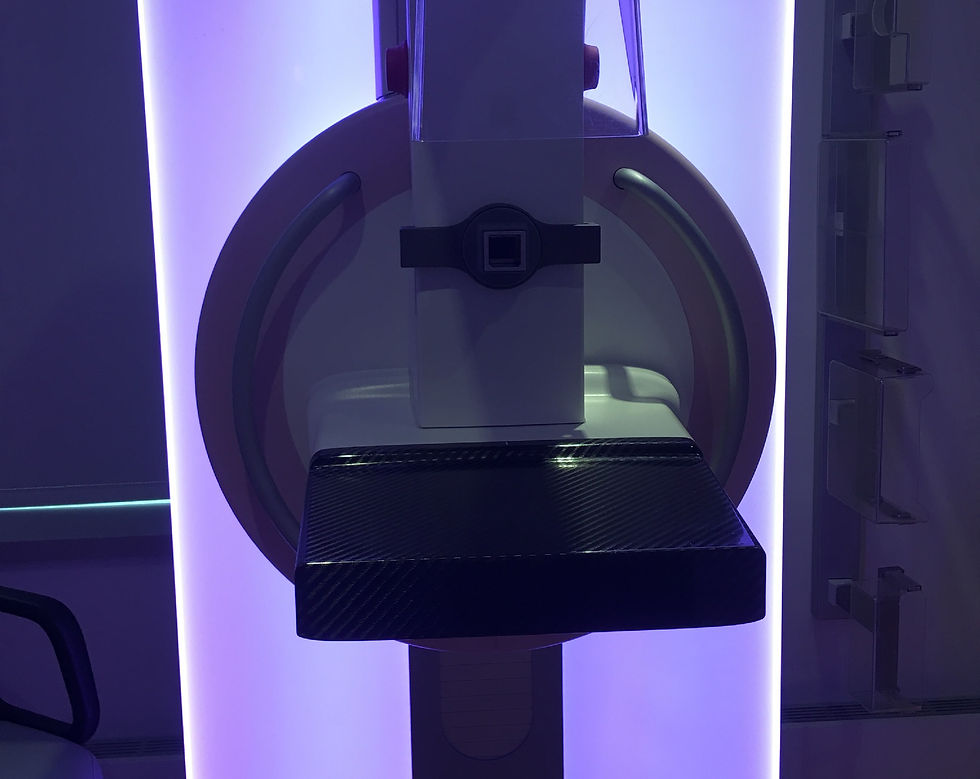All Canadians Should Be Outraged: Changes to Breast Cancer Screening Guidelines
- Surviving Breast Cancer

- Aug 7, 2022
- 3 min read
Updated: Nov 6
By Dr. Paula Gordon
Canadian women should be outraged. The Canadian Task Force on Preventive Health (CTF) released its latest guidelines for screening for breast cancer in women at average risk. They advise against mammography for women aged 40-49, against women doing breast self-examination (BSE), and against doctors doing breast exams. They recommend women aged 50-74 have mammograms every 2-3 years.

What the CTF Gets Wrong About Screening
A 2014 study of screening in Canada showed 40% fewer deaths among women who had screening mammograms than women who didn’t, but the CTF deliberately chose to ignore observational studies done with modern mammography equipment, in favour of Randomized Control Trials (RCTs) from the 1960s to 1990s, which show only a 15-20% mortality reduction.
The only measurable outcome of an RCT is how many women die of breast cancer, so the CTF ignores three other significant benefits of early detection of cancer: the ability to avoid mastectomy, lymphedema, and chemotherapy.
How can the CTF not recommend annual mammography starting at age 40, if it saves the most lives, and allows more women to have less aggressive treatment? The answer is they focus on “harms”: the number of women who are recalled for additional tests after screening, and “overdiagnosis.”
False-Positives and Overdiagnosis
About 10% of women need additional tests after screening. The CTF uses the pejorative term, “false positive.” That term implies that a cancer was diagnosed, when none was present. This is not the case: women are recalled when there is a potential cancer. This causes anxiety for many women, but it’s transient, and studies show that it doesn’t harm women long-term.
The CTF gives undue weight to overdiagnosis in the harms-to-benefit discussion. Overdiagnosis is the theoretical possibility that a woman will be diagnosed with breast cancer and treated for it, but die of something else (like a heart attack) before she would have died of cancer. The rate of overdiagnosis can only be estimated. Experts estimate it at 10% or less.
The CTF says that most women aged 40-49 would choose not to be screened. From my thousands of conversations with women during my career and in published research, when told that mammograms can prevent breast cancer death, and allow them to have a lumpectomy and avoid chemotherapy if cancer is detected early, most women choose to be screened.
The Importance of Additional Screening for Dense Breasts
The CTF calls breast density an emerging issue. We’ve known about it for 40 years! Having dense breasts is a higher risk than having a mother or sister with breast cancer. Mammography is 96% sensitive in fatty breasts but only about 50% sensitive in the densest breasts. And when cancers go undetected by mammography, they grow larger and can spread by the time they are found. The CTF has not acknowledged the harm of not offering supplementary screening for women with dense breasts.
The CTF says there’s insufficient evidence to recommend supplementary screening for women with dense breasts because of their insistence on RCTs. An RCT of screening ultrasound is underway in Japan, but it will take at least 7-10 years before it can prove mortality reduction. We have observational data from multiple studies showing that ultrasound finds an additional 3-4 cancers per thousand women.
Finding these cancers earlier will allow less aggressive treatment AND reduce mortality. With convincing observational data available, women shouldn’t have to keep dying prematurely until the Japanese RCT is complete.
CTF Screening Philosophy Issues
The CTF exaggerates the “harms” of screening, but they don’t mention the harms of not screening. Yaffe calculated, using a model based on CISNET, that in Canada, approximately 4,000 more women can be expected to die of breast cancer in the next decade, if the CTF guidelines are followed, rather than starting screening at age 40.
The CTF refuses to consider evidence other than RCTs. The Canadian taxpayer is funding this misadventure that will lead to loss of life and unnecessary suffering for women who develop breast cancer and are denied early diagnoses when cancers are small, confined to the breast, and most successfully treated.
Annual mammographic screening starting at age 40 saves the most lives, albeit with the inconvenience and stress of recalls and the theoretical possibility of overdiagnosis. Supplementary screening for women with dense breasts can detect early cancers missed on mammography, saving more lives. All women and their family doctors deserve to have all the facts and the option of shared decision-making, to decide whether the harms outweigh the real benefits. Instead of protecting women from screening, it’s time to start saving women’s lives.


















